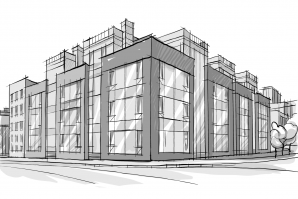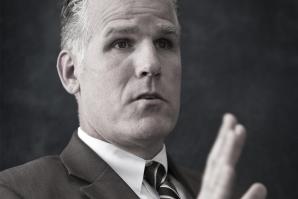California’s business climate is well-known for being unfriendly. CEO Magazine has rated California as the worst state in which to do business for more than eight years running. Undoing Proposition 13’s provisions, as is currently being proposed, will make a big problem even worse by increasing taxes on the very businesses that create jobs and contribute to our economy.
California small businesses failed at rates 69 percent higher than the national average in 2011. Of the top five metropolitan areas for small business bankruptcies, four are in California. We also struggle with one of the highest unemployment rates in the nation and have a higher poverty rate than Mississippi. Yet despite these figures, Sacramento politicians think now is the time to make it more expensive to run a business. Proposals to increase business property taxes threaten to make it even tougher for the tens of thousands of small businesses in this state to hire workers and contribute to their local communities.
How it works:
In 1978, California voters passed Proposition 13. That was when the average property tax rate in California was more than 2.6 percent of the market value. Not only that, but there were no limits on either the tax rate or increases in taxable value. As a result, homeowners were faced with skyrocketing property tax bills. For some homeowners, losing their property became a reality because they couldn’t afford a doubling or tripling of their property taxes.
Despite all the myths surrounding Prop. 13, it is actually quite simple. First, it sets a uniform 1 percent property tax rate cap on all California property. Second, and just as important, it limits increases in the assessed (taxable) value to no more than 2 percent a year. Third, it permits a reassessment of the property to full market value when it is sold.
Prop. 13 benefits property owners and local governments. Property owners – both homeowners and businesses – are now afforded a great deal of certainty in their future property tax liability. For local governments, the benefit is a tax stream far more stable and less volatile than either income or sales taxes. Revenue volatility has been identified by tax experts as the worst problem with California’s tax structure.
Despite all the good policies advanced by Prop. 13, California lawmakers and special interests are looking to reverse some – if not all – of Prop. 13’s protections. One proposal is a “split roll” property tax that would raise property taxes on business properties, causing a devastating setback to California’s economic recovery.
Small businesses can’t afford higher property taxes
A 2012 study by Stephen Frates and Michael Shires at Pepperdine University’s Davenport Institute showed that dismantling Prop. 13’s landmark protections for business properties would cost California families and businesses $6 billion and 396,345 jobs over the first five years. It would disproportionately hurt small businesses, especially those owned by women and minorities.
We are extremely concerned about a so-called split roll when many businesses are already operating on thin profit margins. Just like homeowners, businesses benefit from consistent and predictable property taxes because it gives them the ability to plan for the future.
Also, many people forget that most small businesses rent their spaces and don’t own the property. However, they are far from immune from property tax increases. Most leases held by small businesses include provisions requiring them to pay the property taxes associated with their facility, and they simply can’t afford to absorb these costs.
What should change
While Prop. 13 needs no alteration, the same may not be true for some of the implementing statutes. During the 2014 Legislative session we reached out to Lenny Goldberg, who represents the California Tax Reform Association, to find common ground in AB 2372 (Ammiano), a common sense approach to fixing a statute which allowed – contrary to the intent of Prop. 13 – some clever lawyers to avoid reassessment of property even when it had fully changed hands among owners. Unfortunately, an isolated fix to a problem that all parties agreed needed to be addressed was not the full blown split roll that the tax-and-spend interests are holding out for. Even though Mr. Goldberg initially joined us in supporting the bill, he was forced to change his position to oppose. So much for compromise.
Although lawmakers think that now is the time to revisit Prop. 13, California voters do not. A recent PPIC poll shows that Prop. 13 is still supported by 64 percent of likely voters. Not only is Prop. 13 popular in California, several states throughout the country have followed in California’s footsteps by enacting their own property tax reforms, including Arizona (2012), New York (2011) and Florida (1993).
At a time when Californians are finally starting to bounce back from a devastating recession, making changes to Prop. 13 in order to increase property taxes on homeowners and business owners would only stop that recovery dead in its tracks.
Recommended For You

Reform Prop. 13
Is a discussion possible?
After all these years since California voters passed Proposition 13, what will it take to have a rational discussion about amending the way commercial property is assessed?

Happy National Estate Planning Awareness Week!
But before the party starts, here are 7 questions you need to answer
If National Estate Planning Awareness Week, which started yesterday, snuck up on you this year, you are not alone. In fact, if you don’t have an estate plan, you have lots of company. Fifty percent of Americans lack a will and other vital estate planning documents, and their absence is a sure path to probate court and often lengthy, costly legal proceedings before an estate is settled.

Restraining the Titans
California's insurance commissioner on the importance of veto power over rate hikes
California Insurance Commissioner Dave Jones has spent much of the past decade looking to enact rate regulations on the health insurance industry, first as an Assemblymember and now as the state’s top insurance regulator. We sat down with him recently to talk about Proposition 45, a November ballot measure he supports that would give him the power to reject health insurance rate hikes.

Realign. Redevelop.
Counties director Matt Cate thinks California is righting its course
No one can accuse Matt Cate of avoiding the hard jobs. During his four years at the helm of California’s state prisons, he guided the system through some of its toughest times, including historic budget cuts and the implementation of Gov. Jerry Brown’s controversial 2011 realignment plan, which shifted tens of thousands of offenders to local jails and parole supervision.




Comments
I do agree that in regard to a principal residence where one is registered, Prop 13 protects people from the tax effects of gentrification. The value of commercial and rental property, however, is determined largely by the amount of income it brings in, so in that case a "property tax" is really closer to an income tax. There needs to be some limits even here; those who complain about the displacement of local businesses by "chains" should not push a tax policy that incentivized precisely that. The part of Prop 13 that we should be rid of is the part that requires a 2/3 vote to increase any tax. If we keep that, we should also require a 2/3 vote, whether of the legislature of the people, to institute any new spending program, raise or increase any pension for government workers, or do any ballot box budgeting like Prop 98.
A Defense of Proposition 13 Property Tax Revenues
by Richard Rider, Chairman, San Diego Tax Fighters
Updated 3 April, 2014
Blog: www.RiderRants.BlogSpot.com
When it comes to gathering sufficient property taxes, Prop 13 is no problem at all – except for profligate spenders. Look at the history of my San Diego County – a history which pretty much reflects the history of property taxes in the urban/suburban counties that hold over 85% of California's population.
According to the SD County Tax Assessor, in 1977 – the year BEFORE Prop 13 took effect (when everything was working great, according to Prop 13 critics) – our countywide property tax revenue was about $639 million. In the 2012-2013 fiscal year, our county treasurer reported real estate property tax revenues of $4.630 BILLION. For every property tax dollar collected in 1977, the county in 2012-13 collected $7.25. And BTW, according to the County Assessor, since Prop 13 passed, 97% of the pre-Prop 13 county owner-occupied homes has changed hands (and been reassessed) at least once.
During that time frame, our county population has grown about 86%, and inflation has gone up about 258%. Hence property tax revenues today are substantially higher than the bloated PRE-Prop 13 year, even after adjusting for inflation and population growth.
California in 2009 ranked 15th highest in per capita property taxes (including commercial) – the only major tax where we are not in the worst ten states. But CA property taxes per owner-occupied home were the 10th highest in the nation in 2009.
http://www.taxfoundation.org/t...
and
http://www.taxfoundation.org/t... (2009 latest year available)
To see how CA ranks numerically against the other states on tax, regulation, litigation, utility costs and other economic factors (with confirming URL’s), go to: www.TinyURL.com/CA-vs-other-st... and read the latest updated version of my dreary fact sheet “Breaking Bad – CA vs. the Other States.”
***
It turns out that, under Prop 13, property tax revenue is FAR more stable than our other forms of tax revenue. During the recession, income tax revenue plunged, and sales tax revenue significantly declined.
But property tax revenue seldom goes down AT ALL. Since the year Prop 13 passed in 1978, San Diego County real estate property tax revenue has ALWAYS gone up – every year – until the 2009-10 fiscal year, when it dropped (drum roll) 1.5%. The next year property tax revenue slipped another 0.9%, but in 2011-12 year it was up 1.1%, and in 2012-13 it was up another 0.9%.
Not one person in a thousand knows about this revenue stability. The press has not covered these amazing facts.
Revenue is up because Prop 13 has the little-known added benefit of smoothing out real estate property tax revenue from year to year. Most properties this past year (generally those purchased prior to 2003) had their property tax go up 2%. Add to that the property resales, property improvements, “catch up” reassessments and new structures (all of which establish new tax assessment levels), and the revenue stayed rather constant in the teeth of our economic downturn.
Consider what happens without Prop 13 protection: In the real estate boom years from 1998 through 2005, property taxes would have SOARED. Even WITH the Prop 13 limitations, San Diego County property tax revenue collection during this period STILL rose 111%. But then in the next four years, dropping property values would have caused a dramatic plummet in property tax revenues – revenues that governments would now be hooked on – just like we see with our volatile sales taxes, and especially with our hugely erratic income tax revenues. Property tax revenues are CA governments’ one steady, reliable source of income – thanks to Prop 13.
Let me get this straight: A beautiful house with a great view that hasn't sold (at least not on the books) is able to retain a low assessment (therefore low taxes) while a moderate house purchased by first time home owners is assessed at its selling price and therefore pays as much as 10x more in taxes than the first house? Not sure how anyone would think that is fair.